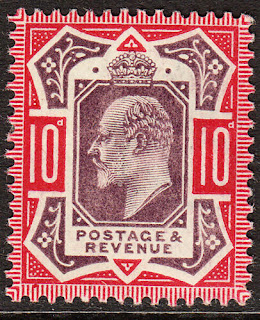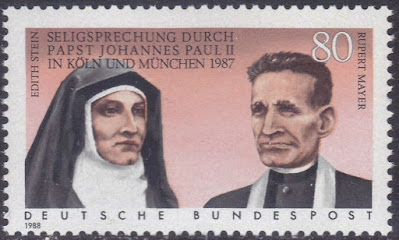1854 – Henry David Thoreau publishes Walden.
Henry David Thoreau (July 12, 1817 – May 6, 1862) was an American essayist, poet, and philosopher. A leading transcendentalist, he is best known for his book Walden, a reflection upon simple living in natural surroundings, and his essay "Civil Disobedience" (originally published as "Resistance to Civil Government"), an argument for disobedience to an unjust state.
Walden ( first published as Walden; or, Life in the Woods) is a book by transcendentalist Henry David Thoreau. The text is a reflection upon simple living in natural surroundings. The work is part personal declaration of independence, social experiment, voyage of spiritual discovery, satire, and—to some degree—a manual for self-reliance.
First published in 1854, Walden details Thoreau's experiences over the course of two years, two months, and two days in a cabin he built near Walden Pond amidst woodland owned by his friend and mentor Ralph Waldo Emerson, near Concord, Massachusetts. Thoreau used this time (July 4, 1845 - September 6, 1847) to write his first book, A Week on the Concord and Merrimack Rivers (1849). The experience later inspired Walden, in which Thoreau compresses the time into a single calendar year and uses passages of four seasons to symbolize human development.
By immersing himself in nature, Thoreau hoped to gain a more objective understanding of society through personal introspection. Simple living and self-sufficiency were Thoreau's other goals, and the whole project was inspired by transcendentalist philosophy, a central theme of the American Romantic Period.
Thoreau makes precise scientific observations of nature as well as metaphorical and poetic uses of natural phenomena. He identifies many plants and animals by both their popular and scientific names, records in detail the color and clarity of different bodies of water, precisely dates and describes the freezing and thawing of the pond, and recounts his experiments to measure the depth and shape of the bottom of the supposedly "bottomless" Walden Pond.
US Stamps depicting Henry David Thoreau
1902 – Edward VII and Alexandra of Denmark are crowned King and Queen of the United Kingdom of Great Britain and Ireland.
Edward VII (Albert Edward; 9 November 1841 – 6 May 1910) was King of the United Kingdom of Great Britain and Ireland from 22 January 1901 until his death in 1910.
The eldest son of Queen Victoria and Prince Albert of Saxe-Coburg and Gotha, Edward was related to royalty throughout Europe. He was heir apparent to the British throne and held the title of Prince of Wales for longer than any of his predecessors. During the long reign of his mother, he was largely excluded from political power, and came to personify the fashionable, leisured elite. He traveled throughout Britain performing ceremonial public duties, and represented Britain on visits abroad. His tours of North America in 1860 and the Indian subcontinent in 1875 were popular successes, but despite public approval his reputation as a playboy prince soured his relationship with his mother.
As king, Edward played a role in the modernization of the British Home Fleet and the reorganization of the British Army after the Second Boer War. He reinstituted traditional ceremonies as public displays and broadened the range of people with whom royalty socialized. He fostered good relations between Britain and other European countries, especially France, for which he was popularly called "Peacemaker", but his relationship with his nephew, the German Emperor Wilhelm II, was poor. The Edwardian era, which covered Edward's reign and was named after him, coincided with the start of a new century and heralded significant changes in technology and society, including steam turbine propulsion and the rise of socialism. He died in 1910 in the midst of a constitutional crisis that was resolved the following year by the Parliament Act 1911, which restricted the power of the unelected House of Lords.
Stamps issued by Great Britain depicting Edward VII
The eldest son of Queen Victoria and Prince Albert of Saxe-Coburg and Gotha, Edward was related to royalty throughout Europe. He was heir apparent to the British throne and held the title of Prince of Wales for longer than any of his predecessors. During the long reign of his mother, he was largely excluded from political power, and came to personify the fashionable, leisured elite. He traveled throughout Britain performing ceremonial public duties, and represented Britain on visits abroad. His tours of North America in 1860 and the Indian subcontinent in 1875 were popular successes, but despite public approval his reputation as a playboy prince soured his relationship with his mother.
As king, Edward played a role in the modernization of the British Home Fleet and the reorganization of the British Army after the Second Boer War. He reinstituted traditional ceremonies as public displays and broadened the range of people with whom royalty socialized. He fostered good relations between Britain and other European countries, especially France, for which he was popularly called "Peacemaker", but his relationship with his nephew, the German Emperor Wilhelm II, was poor. The Edwardian era, which covered Edward's reign and was named after him, coincided with the start of a new century and heralded significant changes in technology and society, including steam turbine propulsion and the rise of socialism. He died in 1910 in the midst of a constitutional crisis that was resolved the following year by the Parliament Act 1911, which restricted the power of the unelected House of Lords.
Stamps issued by Great Britain depicting Edward VII
1942 Died: Edith Stein, German nun and saint (b. 1891)
Edith Stein (religious name Teresia Benedicta a Cruce OCD; also known as St. Edith Stein or St. Teresa Benedicta of the Cross; 12 October 1891 – 9 August 1942) was a German Jewish philosopher who converted to Catholicism and became a Discalced Carmelite nun. She is canonized as a martyr and saint of the Catholic Church, and she is one of six co-patron saints of Europe.
She was born into an observant Jewish family, but had become an atheist by her teenage years. Moved by the tragedies of World War I, in 1915 she took lessons to become a nursing assistant and worked in an infectious diseases hospital. After completing her doctoral thesis from the University of Göttingen in 1916, she obtained an assistantship at the University of Freiburg.
From reading the works of the reformer of the Carmelite Order, Teresa of Ávila, she was drawn to the Catholic faith. She was baptized on 1 January 1922 into the Catholic Church. At that point, she wanted to become a Discalced Carmelite nun, but was dissuaded by her spiritual mentors. She then taught at a Catholic school of education in Speyer. As a result of the requirement of an "Aryan certificate" for civil servants promulgated by the Nazi government in April 1933 as part of its Law for the Restoration of the Professional Civil Service, she had to quit her teaching position.
She was admitted to the Discalced Carmelite monastery in Cologne the following October. She received the religious habit of the Order as a novice in April 1934, taking the religious name Teresa Benedicta of the Cross. In 1938, she and her sister Rosa, by then also a convert and an extern sister (tertiaries of the Order, who would handle the community′s needs outside the monastery), were sent to the Carmelite monastery in Echt, Netherlands, for their safety. Despite the Nazi invasion of that state in 1940, they remained undisturbed until they were arrested by the Nazis on 2 August 1942 and sent to the Auschwitz concentration camp, where they are alleged to have died in the gas chamber on 9 August 1942.
German stamps depicting Edith Stein
1962 Died: Hermann Hesse, German-born Swiss poet, novelist, and painter, Nobel Prize laureate (b. 1877)
Hermann Karl Hesse (2 July 1877 – 9 August 1962) was a German-born Swiss poet, novelist, and painter. His best-known works include Demian, Steppenwolf, Siddhartha, and The Glass Bead Game, each of which explores an individual's search for authenticity, self-knowledge and spirituality. In 1946, he received the Nobel Prize in Literature.
In his time, Hesse was a popular and influential author in the German-speaking world; worldwide fame only came later. Hesse's first great novel, Peter Camenzind, was received enthusiastically by young Germans desiring a different and more "natural" way of life in this time of great economic and technological progress in the country. Demian had a strong and enduring influence on the generation returning home from the First World War. Similarly, The Glass Bead Game, with its disciplined intellectual world of Castalia and the powers of meditation and humanity, captivated Germans' longing for a new order amid the chaos of a broken nation following the loss in the Second World War.
Towards the end of his life, German (born Bavarian) composer Richard Strauss (1864–1949) set three of Hesse's poems to music in his song cycle Four Last Songs for soprano and orchestra (composed 1948, first performed posthumously in 1950): "Frühling" ("Spring"), "September", and "Beim Schlafengehen" ("On Going to Sleep").
In the 1950s, Hesse's popularity began to wane, while literature critics and intellectuals turned their attention to other subjects. In 1955, the sales of Hesse's books by his publisher Suhrkamp reached an all-time low. However, after Hesse's death in 1962, posthumously published writings, including letters and previously unknown pieces of prose, contributed to a new level of understanding and appreciation of his works.
By the time of Hesse's death in 1962, his works were still relatively little read in the United States, despite his status as a Nobel laureate. A memorial published in The New York Times went so far as to claim that Hesse's works were largely "inaccessible" to American readers. The situation changed in the mid-1960s, when Hesse's works suddenly became bestsellers in the United States. The revival in popularity of Hesse's works has been credited to their association with some of the popular themes of the 1960s counterculture (or hippie) movement. In particular, the quest-for-enlightenment theme of Siddhartha, Journey to the East, and Narcissus and Goldmund resonated with those espousing counter-cultural ideals. The "magic theatre" sequences in Steppenwolf were interpreted by some as drug-induced psychedelia although there is no evidence that Hesse ever took psychedelic drugs or recommended their use. To a large part, the Hesse boom in the United States can be traced back to enthusiastic writings by two influential counter-culture figures: Colin Wilson and Timothy Leary. From the United States, the Hesse renaissance spread to other parts of the world and even back to Germany: more than 800,000 copies were sold in the German-speaking world from 1972 to 1973. In a space of just a few years, Hesse became the most widely read and translated European author of the 20th century. Hesse was especially popular among young readers, a tendency which continues today.
There is a quote from Demian on the cover of Santana's 1970 album Abraxas, revealing the source of the album's title.
Hesse's Siddhartha is one of the most popular Western novels set in India. An authorised translation of Siddhartha was published in the Malayalam language in 1990, the language that surrounded Hesse's grandfather, Hermann Gundert, for most of his life. A Hermann Hesse Society of India has also been formed. It aims to bring out authentic translations of Siddhartha in all Indian languages and has already prepared the Sanskrit, Malayalam and Hindi translations of Siddhartha. One enduring monument to Hesse's lasting popularity in the United States is the Magic Theatre in San Francisco. Referring to "The Magic Theatre for Madmen Only" in Steppenwolf (a kind of spiritual and somewhat nightmarish cabaret attended by some of the characters, including Harry Haller), the Magic Theatre was founded in 1967 to perform works by new playwrights. Founded by John Lion, the Magic Theatre has fulfilled that mission for many years, including the world premieres of many plays by Sam Shepard.
There is also a theater in Chicago named after the novel, Steppenwolf Theater.
German stamps depicting Hermann Hesse









No comments:
Post a Comment